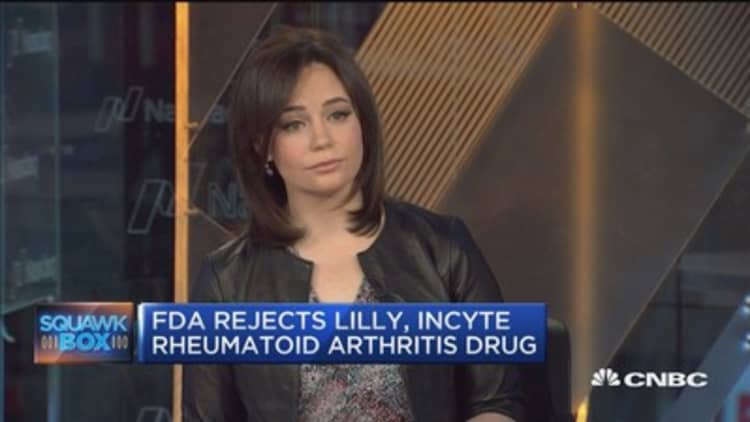
Shares of Eli Lilly closed down more than 4 percent Monday after the Food and Drug Administration rejected its drug to treat rheumatoid arthritis.
Shares of Incyte, Lilly's partner on the drug,
Lilly said Friday that the FDA needed additional data to "characterize safety concerns across treatment arms" and to determine "the most appropriate doses."
Christi Shaw, president of Lilly Bio-Medicines, said in a statement: "We will continue to work with the FDA to determine a path forward and ultimately bring
Analysts at BMO Capital Markets downgraded Lilly's stock to underperform from market perform and lowered their price target on the shares to $71 from $73. The analysts called
"Overall, we highly doubt that the stated FDA concerns could be addressed without new clinical trials; therefore, we believe the timing for Bari's U.S. RA launch is most likely pushed back at least three years," BMO said in a Monday note, adding it lowered
Eli Lilly's shares closed at $82.38 per share on Monday, up 12 percent year-to-date.
LLY in 2017
Source: FactSet


